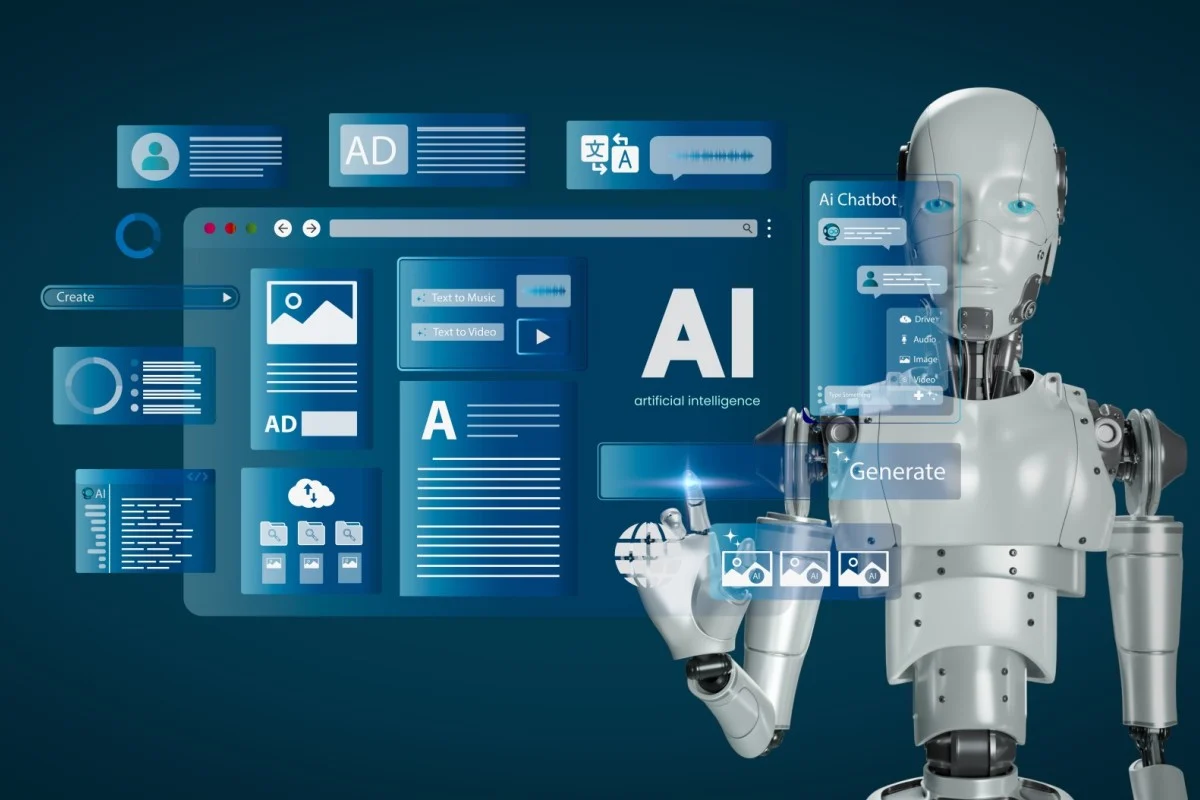contact info
- 3rd Floor, Gujranwala Business Center, Near KFC, G.T. Road, Gujranwala, Pakistan
- +92 303 0813333
- +92 303 0644484
- info@hashlearning.com
- info@hashlearning.com

Artificial Intelligence (AI) has long been a fascinating concept, but today it stands as a transformative force reshaping industries, societies, and individual lives. Once confined to academic discussions and science fiction, AI has now become a centerpiece of innovation and progress. So, why is AI garnering such unprecedented attention, and what does it mean for the future? Let’s explore the profound impact of AI and why it’s at the heart of the modern technological revolution.
AI’s meteoric rise from theoretical research to practical application is fueled by three pillars: data, computational power, and advanced algorithms. The modern world generates an immense volume of data—from social media interactions to sensor-driven Internet of Things (IoT) devices. This data serves as the lifeblood of AI, enabling it to learn, refine, and excel.
Simultaneously, innovations in computational power, particularly the development of GPUs and TPUs, have made it possible to process vast datasets with remarkable efficiency. Advanced algorithms, including deep learning and reinforcement learning, have further propelled AI to perform complex tasks like natural language processing, image recognition, and autonomous decision-making.
The scope of AI extends far beyond what was once imagined. Here are some additional domains where AI is pushing boundaries:
AI is playing a pivotal role in tackling climate change. Machine learning models analyze environmental data to predict weather patterns, optimize energy consumption, and develop sustainable farming practices. AI-driven technologies are also being employed to monitor deforestation, track endangered species, and reduce carbon footprints.
In the financial sector, AI is revolutionizing operations by detecting fraudulent activities, automating trading strategies, and offering personalized financial advice. Algorithms analyze massive datasets in real time to identify trends and risks, empowering businesses and individuals to make smarter financial decisions.
AI is enhancing global security by enabling smarter surveillance systems, detecting cyber threats, and improving emergency response strategies. In defense, autonomous drones, predictive maintenance for equipment, and advanced simulations are helping nations prepare for modern challenges.
AI is extending humanity’s reach into the cosmos. NASA and other space agencies are using AI to analyze data from distant planets, optimize satellite operations, and even pilot rovers autonomously. As we aim to colonize other planets, AI will undoubtedly play a critical role.
While AI brings extraordinary opportunities, it also presents significant ethical challenges. How do we ensure AI systems are unbiased, ethical, and transparent? What measures can be taken to address job displacement caused by automation? And how can we safeguard individual privacy in an AI-driven world?
AI systems are only as impartial as the data they are trained on. If the data reflects societal biases, the AI’s decisions will perpetuate those biases. For example, facial recognition technology has faced criticism for inaccuracies in identifying individuals from certain demographics. To build equitable AI, developers must actively address and mitigate such biases.
As automation powered by AI disrupts traditional industries, millions of jobs may be at risk. While AI will create new roles, the transition could be challenging. Governments and organizations must invest in upskilling and reskilling programs to prepare the workforce for this new era.
AI’s ability to process vast amounts of personal data raises significant privacy concerns. Striking a balance between innovation and data protection will require robust regulations and ethical guidelines to ensure AI serves humanity responsibly.
As AI systems gain more autonomy, ensuring accountability becomes paramount. Who is responsible when an AI makes a mistake or causes harm? Establishing clear lines of accountability will be critical as AI systems increasingly influence decision-making processes in areas like healthcare, law, and finance.

AI is not just a tool; it’s a transformative force shaping the future. To harness its full potential, collaboration between governments, businesses, and individuals is crucial. Policymakers must establish clear frameworks to guide responsible AI development, while businesses must prioritize transparency and accountability.
On an individual level, embracing lifelong learning is vital to staying relevant in an AI-driven world. Understanding the basics of AI and its applications will empower people to adapt and thrive in this rapidly changing landscape. Additionally, fostering discussions on the societal impacts of AI will help ensure a balanced and inclusive approach to its development.
The AI revolution is just beginning. As its capabilities grow, so will its influence on our lives. From rethinking education to redefining global cooperation, AI has the potential to reshape every aspect of human civilization. Preparing for this future means not only leveraging AI for progress but also anticipating challenges and addressing them proactively.
AI is undeniably the defining technology of our era, unlocking unparalleled opportunities for innovation and progress. However, with its immense power comes the responsibility to use it wisely. By fostering ethical practices, inclusivity, and sustainability, we can ensure AI serves as a force for good, enhancing human potential rather than replacing it. The future is here, and with all eyes on AI, it’s up to us to shape its trajectory for the better.
You must be logged in to post a comment.